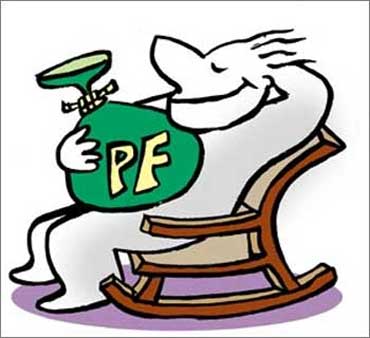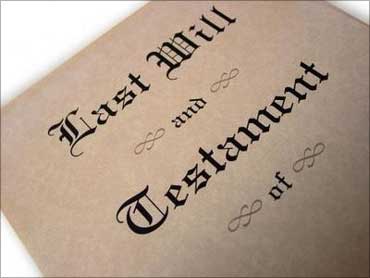
Tax-smart utilisation of your savings can provide an added bounce in achieving financial freedom during retirement. This is particularly so for salaried and self-employed people because there are no government retirement benefits available for such people in their retired life.
How best to use your savings for achieving a retirement nest egg would obviously differ from person to person as it would depend upon a person's income, his / her needs, the number of family members, their age and aspirations, the pre-retirement time period available for making investment, family commitments in pre- and post-retirement period, etc.
However, one common suggestion, which can't be emphasised too strongly, is: don't include any risky and speculative investments as regards utilisation of savings in your retirement plans.
The investment focus, instead, should be such that it should enable one to save income tax on the one hand and reasonable appreciation on the other. This tax-smart approach would enable you to have a good deal of money at the time of retirement. Click on NEXT to read the 1st suggestion...

Create an HUF (Hindu undivided family)
Many salaried Hindu taxpayers, and in this context "Hindu" includes Jains and Sikhs, do not have a separate tax file for the HUF. Please note that it is possible, even without any ancestral property, for a Hindu to have a separate tax status of Hindu Undivided Family and thus get a separate tax exemption on its income (Rs 160,000 in FY 2009-10).
Besides, a separate tax deduction of up to Rs 100,000 from taxable income under Section 80C (Rs 100,000 in FY 2009-10) would be available in respect of investments made through the HUF.
To create an HUF, what one needs is a gift from friends and relatives (other than members of the HUF), supplemented by interest-free loans, or loans at low rates of interest, from relatives and friends. There can even be a Hindu Undivided Family comprising of only husband and wife. Click on NEXT...

Trust for children's big-ticket needs
One requires considerable money at the right time in order to provide for higher education and marriage of one's children.
For this purpose, it is necessary to have a plan to keep savings duly invested under a trust for the marriage or education of son or daughter. Without such a plan, you would probably end up eating into money earmarked for your retirement.
There can be a hundred per cent specific beneficiary trust and it can be created by the investor oneself, or through one's close friend or relative.
Such a trust deed should provide for the accumulation of the trust's income during the minority of the child so that the money is available for the grown up child's education, marriage, etc., as the case may when he is a major.
During the minority of the child, the income of the minor child under the trust would not be added with the income of the father or mother as per the principles laid down by the Supreme Court of India in the case of C.I.T. v M.R. Joshi [1995] 211 ITR 1 (SC). Click on NEXT for more tips...

Planning for a residential house
Every one should plan to have at least one residential house or flat. This is an absolute imperative for financial freedom during retirement. Fortunately, under the Income Tax Act, a deduction (up to Rs 150,000 for FY 2009-10) is available in respect of interest on borrowed funds for purchase or construction of a residential house.
Thus, one's own savings coupled with borrowed funds from banks and other financial institutions would enable you to own a house in due course.
Further, even the repayment of the loan is deductible under Section 80C of the I.T. Act. Thus, a good deal of tax saving is possible by smartly planning the utilization of one's own savings and borrowed funds for acquiring a home of your own.

Trust for a personal deity
If you believe in God, you can create a trust for your chosen deity and invest the trust's funds in safe avenues such as units of mutual funds, bank fixed deposits, immovable property, etc.
In course of time, this would enable a taxpayer to have the money to spend on various personal religious functions without being required to spend out of his tax-saved retirement corpus. This would also enable the person to enjoy a separate exemption limit of (Rs 160,000 in FY 2009-10) for one's personal deity.
Investing in life insurance policy
A life insurance policy guarantees financial security to one's dependants. Equally, upon maturity a life insurance policy adds to one's retirement corpus.
As far as possible, an endowment policy without profit would be an ideal investment towards this end. Life insurance, of course, is very tax-efficient. The premiums are covered within the overall limit (Rs 100,000 for FY 2009-10) under the different provisions of Section 80C of the I.T. Act. Equally, the amount received on maturity is also tax free. Click on NEXT...

Invest in Public Provident Fund
I would emphasise that every taxpayer ought to invest in 15-year public provident fund. It is a tax-smart investment; and also offers a handsome return when compared to other fixed income investment options. Its longer tenure is also a wealth-building factor.
The maximum amount that can be invested each year is stipulated (in FY 2009-10, the limit is Rs. 70,000) which would enable the person to get income tax deduction within the overall limit (Rs 100,000 for FY 2009-10) under Section 80C.
Further, the interest on PPF of 8 per cent or more per annum is completely exempt from income tax under Section 10 of the I.T. Act. Besides, the accumulated amount on the maturity of the PPF is also not liable to any tax at present.
Other tax free investment avenues
If one has sufficient money to invest in the bonds and market securities, then mutual fund investment would be very good as the return on mutual fund is completely exempt from income tax.
Likewise, if some one has good knowledge of the share capital market, then one can invest in shares of good companies, the dividend from which is also exempt from income tax. Click on NEXT for the final tip...

Prepare a Will
I would strongly urge every person, particularly those above the age of 40 years, to have a properly drafted Will through which he can bequeath his property to the persons as he likes.
While drafting such a Will, care should be taken to see that maximum advantage is taken of the benefit of a separate income tax file in the name of the estate of the testator under Section 168 of the Income Tax Act.
Similarly, only one discretionary trust can be created through the Will for making provision for marriage, medical expenses, etc. of the members of the family and future children and grand children to be born for spending at the discretion of the executor of the Will.
This would also enable the family to have a separate income tax file with a separate exemption limit (Rs 160,000 in FY 2009-10) after the demise of the testator.
[Excerpt from 51 Tips for Saving Income Tax by R. N. Lakhotia. Published by Vision Books.]
(C) All rights reserved